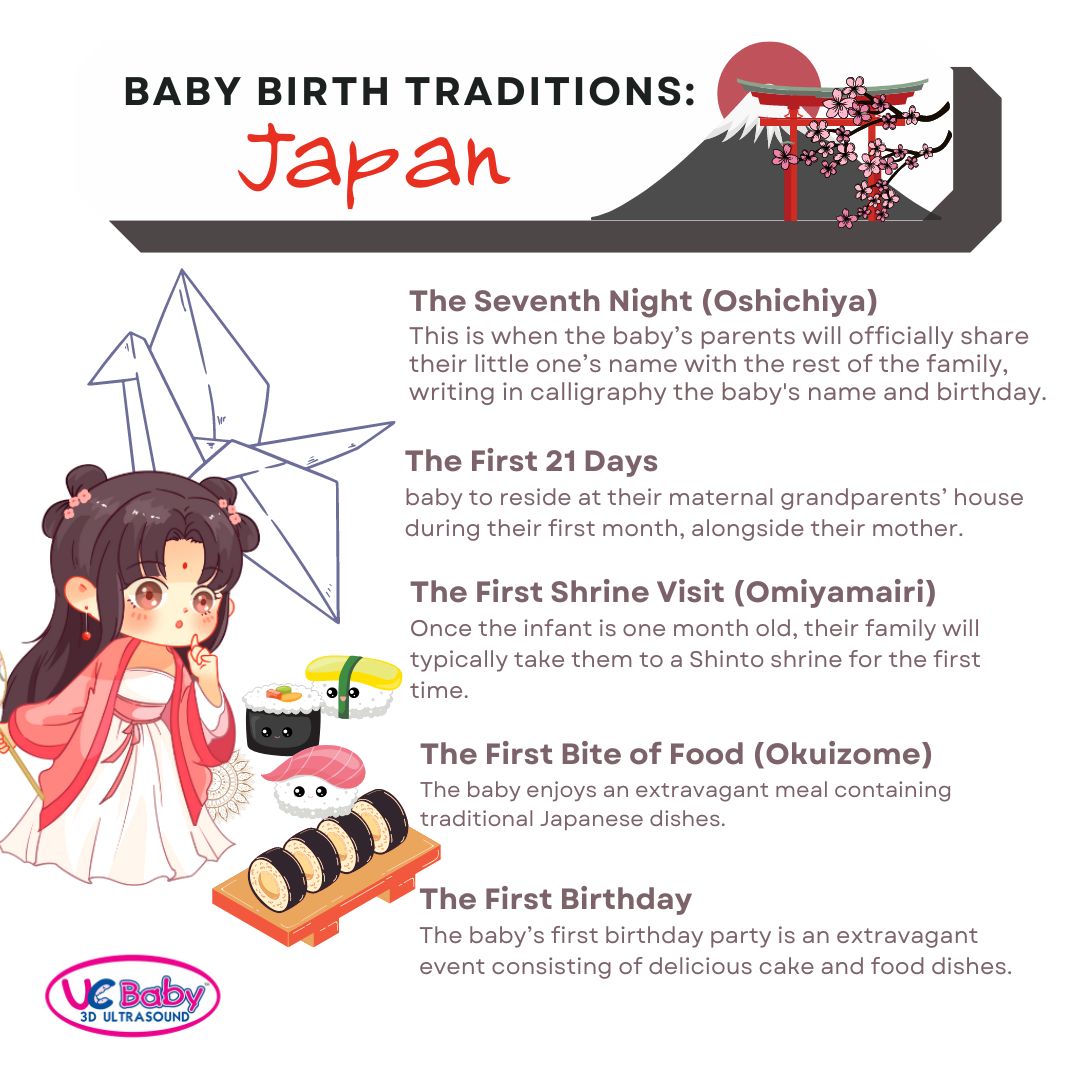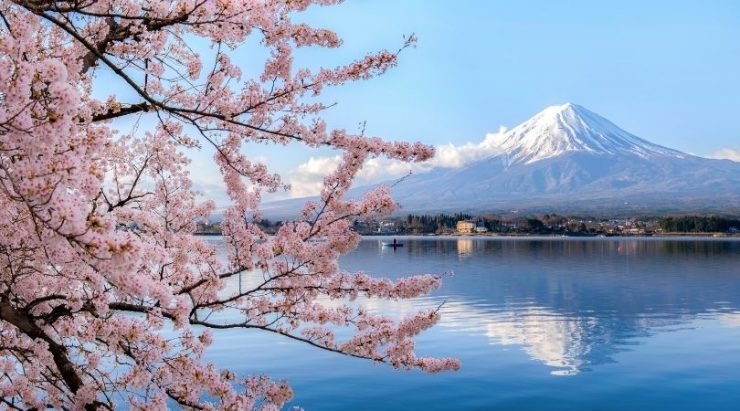In Canada, the birth of a baby is generally a significant celebration. Families commonly host events like baby showers, but every family ultimately celebrates a birth uniquely. In certain countries, birth customs may seem more extravagant than others as celebrations are held for certain milestones. Japan’s festivities focus on the baby’s first time, such as the infant’s first birthday. Today, we’ll explore some of the most common birth traditions in Japan.
What are the popular baby birth traditions in Japan?
Buddhism and Shinto are both prevalent belief systems in Japan, with Shinto shrines being a common visiting place for babies early on. Shinto preaches ideas like living harmoniously with nature, while Buddhism focuses on achieving enlightenment through acts like selfless behaviour. These belief systems currently co-exist in the nation and heavily influence modern birth customs.
Giving Birth
Many women in Japan refrain from taking painkillers or medication when giving birth. This behaviour derives from Buddhist beliefs regarding suffering. It is believed that any pain the mother endures throughout her baby’s birth is a testament to her preparedness as a new mother. Today, more doctors urge women to have an epidural, but some soon-to-be mothers still wish to follow this long-lived custom.
The Seventh Night (Oshichiya)
The baby’s very first ceremony will take place on the seventh night. This is when the baby’s parents will officially share their little one’s name with the rest of the family during a celebratory dinner. The father will typically write out the baby’s name and birthdate in calligraphy on white paper.
The First 21 Days
It is tradition for the baby to reside at their maternal grandparents’ house during their first month, alongside their mother. The mother and baby typically stay in bed for the first 21 days following birth. Visitors are welcome to stop by and enjoy a special red bean and rice dish (osekihan).

The First Shrine Visit (Omiyamairi)
Once the infant is one month old, their family will typically take them to a Shinto shrine for the first time. The mother’s family gifts the baby a formal dress to be worn for this occasion. The visit allows for the introduction between the baby and the Gods. Further, the baby is granted a prayer for health and happiness.
The First Bite of Food (Okuizome)
This ceremony can be held once the baby is either 100 or 120 days old. The baby enjoys an extravagant meal containing traditional Japanese dishes. The mother and father both feed the infant, alternating between one another. They also grant the wish that their child will be well-fed in the future. For baby girls, the family purchases a special black dish set; meanwhile, baby boys receive a red dish set for the occasion.
The First Birthday
In many cultures around the world, a child’s first birthday is a big celebration; The Japanese are no exception. The baby’s first birthday party is an extravagant event consisting of delicious cake and food dishes. One custom calls upon parents to place 1.8 kg of mochi on their baby’s back, testing the little one’s ability to walk with the weight. If the child is successful, this indicates a prosperous future.
References:
10 Japanese Traditional Rituals to Give Every Child a Happy Life
Cradle to the Grave – Birth, Marriage and Death in Japan
Birth Customs Around the World
Written by: Alicia Chow
Check out our Baby Birth Tradition blog series – Baby Birth Traditions – Pakistan





 Invitez familles et amis à assister à cet événement mémorable de votre grossesse. Célébrez avec vos proches où qu’ils soient dans le monde ce moment spécial de lien avec l’enfant.
Invitez familles et amis à assister à cet événement mémorable de votre grossesse. Célébrez avec vos proches où qu’ils soient dans le monde ce moment spécial de lien avec l’enfant. Rien n’est plus beau que les battements de cœur de votre bébé. Enregistrez ce son pour toujours dans un Ourson Coup de cœur de UC Baby®. Il ne s’agit pas simplement d’un beau souvenir, mais aussi d’un moyen efficace qui apaise votre bébé pour l’aider à s’endormir.
Rien n’est plus beau que les battements de cœur de votre bébé. Enregistrez ce son pour toujours dans un Ourson Coup de cœur de UC Baby®. Il ne s’agit pas simplement d’un beau souvenir, mais aussi d’un moyen efficace qui apaise votre bébé pour l’aider à s’endormir.

